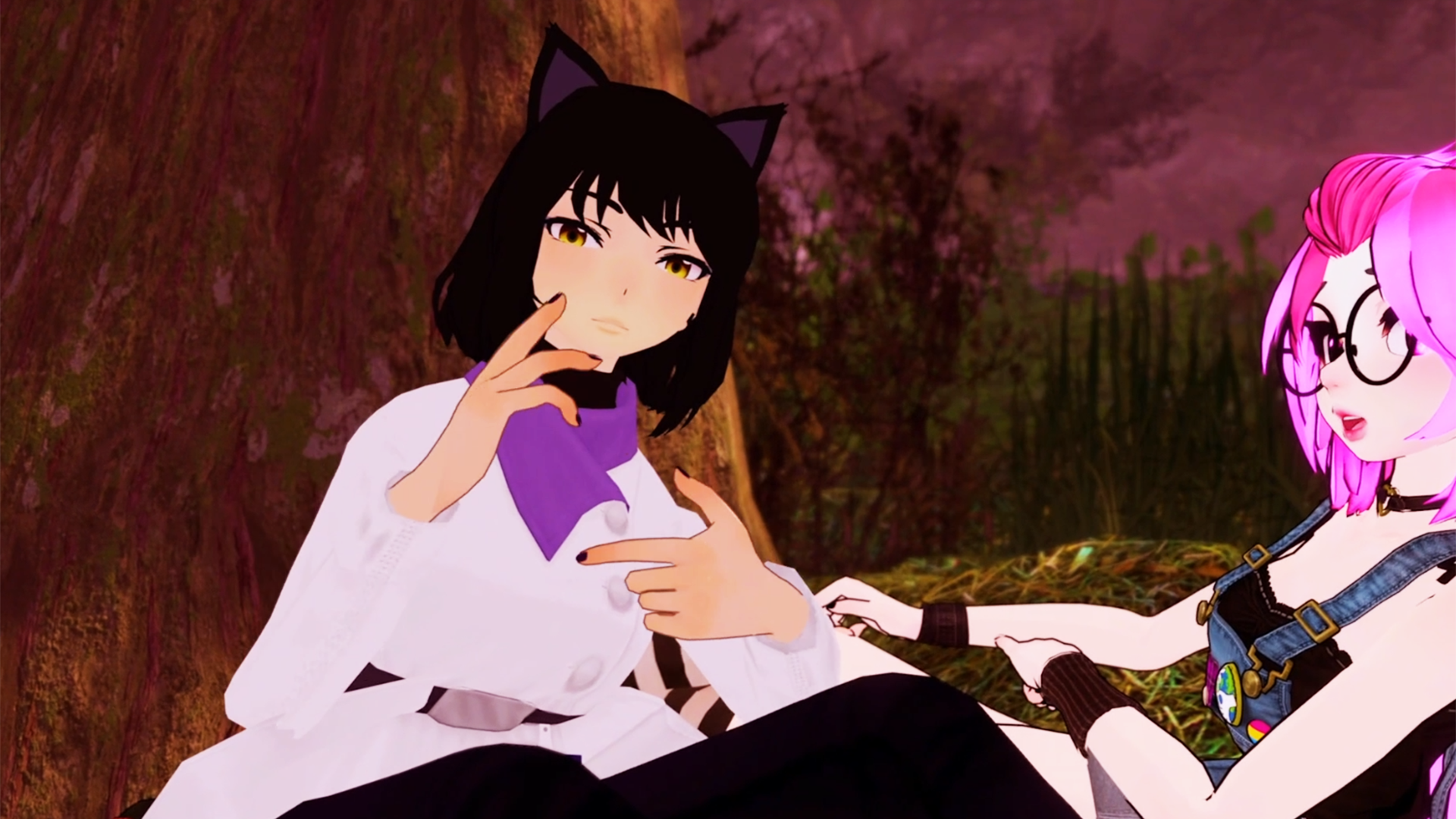
We Met In Digital Actuality (opens in new tab), HBO’s documentary that was filmed totally in VRChat, struggles to seize the truth outdoors of itself. VRChat has been forward of its time since 2014: it is the non-corporate metaverse for catgirls and memes. It is a first-person on-line recreation the place you are able to do absolutely anything you’d do in actual life so long as its group of builders and animators could make it. You’ve got in all probability seen clips of it that includes all the pieces from VTubers (opens in new tab), Sonic characters (opens in new tab), and anime protagonists (opens in new tab).
Naturally, it attracts lots of people that, for no matter cause, do not feel comfy in the actual world. VRChat is an area the place gender, sexuality, and particularly our bodies, are really fluid, and, because of this, it is extremely queer. It is not Fb’s imaginative and prescient of VR, or as Individuals Make Video games (opens in new tab) put it in Might, the “sexless, Zuckerbergian, brand-friendly presentation” of Meta’s billion greenback metaverse. It is a spot for folks to discover their identities, meet others, or painstakingly recreate massive field shops (opens in new tab) and roleplay because the cashiers.
To its credit score, We Met in Digital Actuality is ready to talk the charming absurdity of VRChat over its one hour and 33 minute runtime. However honest, documentarian footage of anime characters and furries vibrating by way of their chairs is not the entire story. Director Joe Looking locks the digital digicam on a handful of people that spend most of their lives within the on-line recreation and who see it as a necessity after Covid locked them inside.
Looking follows a girl that teaches ASL to deaf and exhausting of listening to gamers on daily basis of the week in a reproduction of a school classroom, two {couples} who’re hundreds of miles aside in the actual world, and varied others who discovered some a part of themselves within the recreation. We Met in Digital Actuality is a serviceable depiction of the kinds of relationships and actions present in VRChat, however its insistence with solely pointing the microphone at its most devoted gamers, narrows and, frankly, dates the purpose it is making an attempt to make.
As Individuals Make Video games made clear in its a lot shorter documentary about VRChat, the sport is messy and its gamers are striated. VRChat, at its worst, is an insulated house the place racism goes unpunished and underaged gamers are a number of clicks away from pornography and abuse. On this manner VRChat resembles the early web, earlier than Google and Twitter and Fb and the strategies of management—good and unhealthy—that platform holders have positioned on the way you work together with others on-line got here to be. An nearly utterly optimistic depiction of VRChat is to misconceive what’s truly happening in its largely unmoderated world and the way it seems to these outdoors it.
We Met In Digital Actuality, with its persistent affirmations in regards to the freedom of digital actuality, would not give itself the instruments to sort out the methods a recreation that’s technically playable by all at no cost, however is only beneath an costly VR headset (opens in new tab), defines the kind of individuals who have entry to repeatedly interact with it within the methods the movie is most excited about. Final week, VRChat gamers pushed again in opposition to (opens in new tab) the addition of Simple Anti-Cheat, a expertise that breaks accessibility mods that folks use so as to add issues like closed captions. We Met in Digital Actuality by no means asks its topics what a future seems to be like for a social platform that may buckle from the strain to wash itself up with selections that might forestall it from being a spot for everybody.
As a sequence of tales about folks, We Met in Digital Actuality works. It finds surprisingly stunning pictures of the sport world’s usually flat, jittery look and by no means slips on portraying the folks in it respectfully. However these tales have been taking place all through on-line gaming’s historical past, in additional rudimentary areas. When the world’s largest firms are spending billions (opens in new tab) of {dollars} on their very own model of VRChat, it is clear that most individuals are previous the necessity to see how on-line relationships aren’t some unusual, uncommon factor that deserves a 90-minute inspection. What’s necessary now could be to indicate how platforms the place gamers have extra autonomy like VRChat can adapt as Meta and others’ imaginative and prescient for the metaverse leach probably the most hopeful components of its creativity for revenue.

